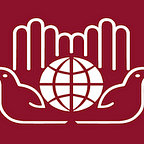Panel 1 Speakers Announcement for the 2019 Design for Humanity Summit II
June 12, New York, New York — On June 21, 2019, the International Institute of Humanitarian Affairs (IIHA) and International Organization for Migration (IOM) will hold their second annual Design For Humanity Summit. This year, the first Design Dialogue is titled “From Camps to Communities,” where panelists will focus on the physical space that migrants, refugees, and internally displaced persons (IDPs) occupy during crises. The panel will also focus on how humanitarian design can positively affect the resilience and quality of life of those peoples in displaced communities.
The IIHA and IOM jointly held the first Design for Humanity Summit last June in 2018 at Fordham University’s Lincoln Center Campus. This inaugural Summit gathered over 350 humanitarians, academics, students, and innovators to learn from panels, workshops and exhibitions taking place throughout the all-day event. With the overarching goal of furthering humanitarian design to make it more forward thinking and progressive, the Design for Humanity Summit II, taking place once again this June 21st at Fordham University’s Lincoln Center Campus, exemplifies a growing interest by humanitarians and designers alike to discuss, debate and connect over the pursuit of humanitarian design objectives, ideals and practices.
The first panel will consist of four speakers and a moderator: Raul Pantaleo, Johan Karlsson, Jan-Maurits, and Lorin Kavanaugh-Ulku, with Brian Kelly moderating.
Brian Kelly, Head of the Community Stabilization Unit for the International Organization for Migration, will be the moderator for this panel. Prior to that Kelly worked the International Rescue Committee and for the Connecticut State Department of Education and was the Regional Emergency and Post Crisis Advisor at the IOM Regional Office for Asia and the Pacific.
Raul Pantaleo is an Italian architect and one of the co-founders of “studio TAMassociati”, a practice which specializes in socially oriented projects in critical areas. Some of the current and completed projects include: The Salam Centre for Cardiac Surgery for the Emergency NGO in Sudan, Children surgery centre for the Emergency NGO in Uganda with Renzo Piano; Banca Etica (Ethic Bank) Headquarters in Padua (Italy); healthcare buildings for the Emergency NGO in Darfur, Sudan; also projects in the Central African Republic, Sierra Leon, Rwanda, Afghanistan, Iraq, Kenya and Uganda.
Johan Karlsson, is the Managing Director of Better Shelter, which develops modular emergency and transitional shelters with the mission to improve the lives of forcibly displaced persons. To date, more than 30,000 units have been delivered to operations in Europe, Sub-Saharan Africa, the Middle East, Latin America and Southeast Asia where they serve as temporary housing as well as communal infrastructure.
Jan-Maurits Loecke, architect, urban activist is also co-founder of HE.LO, an organization that explores place healing strategies for neglected edges of space and society. Their curiosity on ephemeral aspects of migration, space and sound can also be seen in co-authored “Spatial Murmuring, Migration of Spaces and Ideas” at Architecture Biennale Venice, “home not shelter” refugee initiative Munich, “Ceuta” at Medium Insecurities: Tracing Displacement and Shelter“ (MoMA), africanCities Institute, urbanNext.
Lorin Kavanaugh-Ulku, Lorin leads USAID’s prize, challenge, and Grand Challenges for Development portfolio which aims to uncover, test, and scale new development and humanitarian solutions. In this role, Lorin works with teams around the world to develop and successfully implement open innovation competitions; leads learning, data capture, and analysis around these competitions; liaises across a network of challenge partners to accelerate the most promising innovations; and manages a portfolio of catalytic innovation grants.
Register for the upcoming Design for Humanity Summit II: Design in the Time of Displacement to hear there humanitarian and design experts thoughts here.
About the IOM — UN Migration
Established in 1951, IOM is the leading inter-governmental organization in the fi eld of migration and works closely with governmental, intergovernmental and non-governmental partners. With 173 member states, a further 8 states holding observer status and offices in over 100 countries, IOM is dedicated to promoting humane and orderly migration for the benefit of all. It does so by providing services and advice to governments and migrants. IOM works to help ensure the orderly and humane management of migration, to promote international cooperation on migration issues, to assist in the search for practical solutions to migration problems and to provide humanitarian assistance to migrants in need, including refugees and internally displaced people
About the IIHA
The Institute of International Humanitarian Affairs (IIHA) prepares current and future aid workers with the knowledge and skills needed to respond effectively in times of humanitarian crisis and disaster. Our courses are borne of an interdisciplinary curriculum that combines academic theory with the practical experience of seasoned humanitarian professionals. The IIHA also publishes on a wide range of humanitarian topics and regularly hosts a number of events in the New York area, including the annual Humanitarian Blockchain Summit and Design for Humanity Summit.
Written By: Alexandra Huelbig and Aninwaa Anin-Yeboah, Humanitarian Innovation and Design Interns, Institute of International Humanitarian Affairs
For media inquiries please contact:
Camille Giacovas
Communications & Research Officer, IIHA
cgiacovas@fordham.edu
Angela Wells
Public Information Officer for the International Organization for Migration’s Department of Operations and Emergencies
awells@iom.int
